The use of stem cells is a natural progression in integrative medicine. Through the use of stem cell therapy, regenerative medicine is a revolutionary approach to restore, rejuvenate, and regenerate cells, tissue, or organs that are diseased or injured. The second module of the Fellowship in Stem Cell Therapies will provide a detailed foundation of the best practices needed to successfully incorporate cellular therapies into a clinical or research setting. This module will review the safety, efficacy, and validation of all current autologous stem cell harvesting and isolation techniques. The concepts of cell culture and expansion, isolation, cell banking, cryopreservation, and cell validation strategies will be explored. Current compliance and regulatory practices, guidelines, and statutes regarding cellular products and procedures will be presented by thought leaders in the field of regenerative medicine
Objectives:
Upon completion of the module, the participant will:
-
Review the disease background, statistics, etiology, current standard of care, and issues/controversies surrounding current treatments for many cardiovascular conditions, including:
- Myocardial infarction
- Ischemic cardiomyopathy
- Atherosclerosis
- Discuss the mechanism of action, structure, and function of cardiopoietic stem cells
- Analyze the various cell therapies available for cardiovascular regeneration, including induced pluripotent, umbilical, mesenchymal stem cells, and biomaterials
- Possess a working knowledge of clinical studies published outlining the treatment of cardiovascular conditions
- Participate in interactive case study sessions to successfully provide treatment strategies for cardiovascular conditions, including patient selection, diagnosis, risks, and benefits
-
Review the disease background, statistics, etiology, current standard of care, and issues/controversies surrounding current treatments for many vascular conditions, including:
- Intermittent claudication
- Peripheral artery disease
- Critical limb ischemia
- Deep vein thrombosis
- Discuss the mechanism of action, structure, and function of vascular stem cells
- Analyze the various cell therapies available for vascular regeneration, including induced pluripotent, umbilical, mesenchymal stem cells, and biomaterials
- Possess a working knowledge of clinical studies published outlining the treatment of vascular conditions
- Participate in interactive case study sessions to successfully provide treatment strategies for vascular conditions, including patient selection, diagnosis, risks, and benefits
-
Gain expert knowledge regarding the disease background, statistics, etiology, current standard of care, and issues/controversies surrounding current treatments for many pulmonary conditions, including:
- Asthma
- Chronic Obstructive Pulmonary Disorder (COPD)
- Idiopathic pulmonary fibrosis
- Interstitial lung disease
- Respiratory distress syndrome
- Acute lung injury
- Review the structure, function, and mechanisms governing pulmonary cell regeneration
- Discuss the cell therapies available for pulmonary conditions utilizing various cell types (embryonic, umbilical, fetal, mesenchymal stem cells, etc.) and delivery methods available
- Analyze current scientific research outlining the treatment of respiratory conditions utilizing stem cells
- Participate in interactive case study sessions to successfully formulate treatment plans for respiratory conditions including patient selection, diagnosis, risks, and benefits




